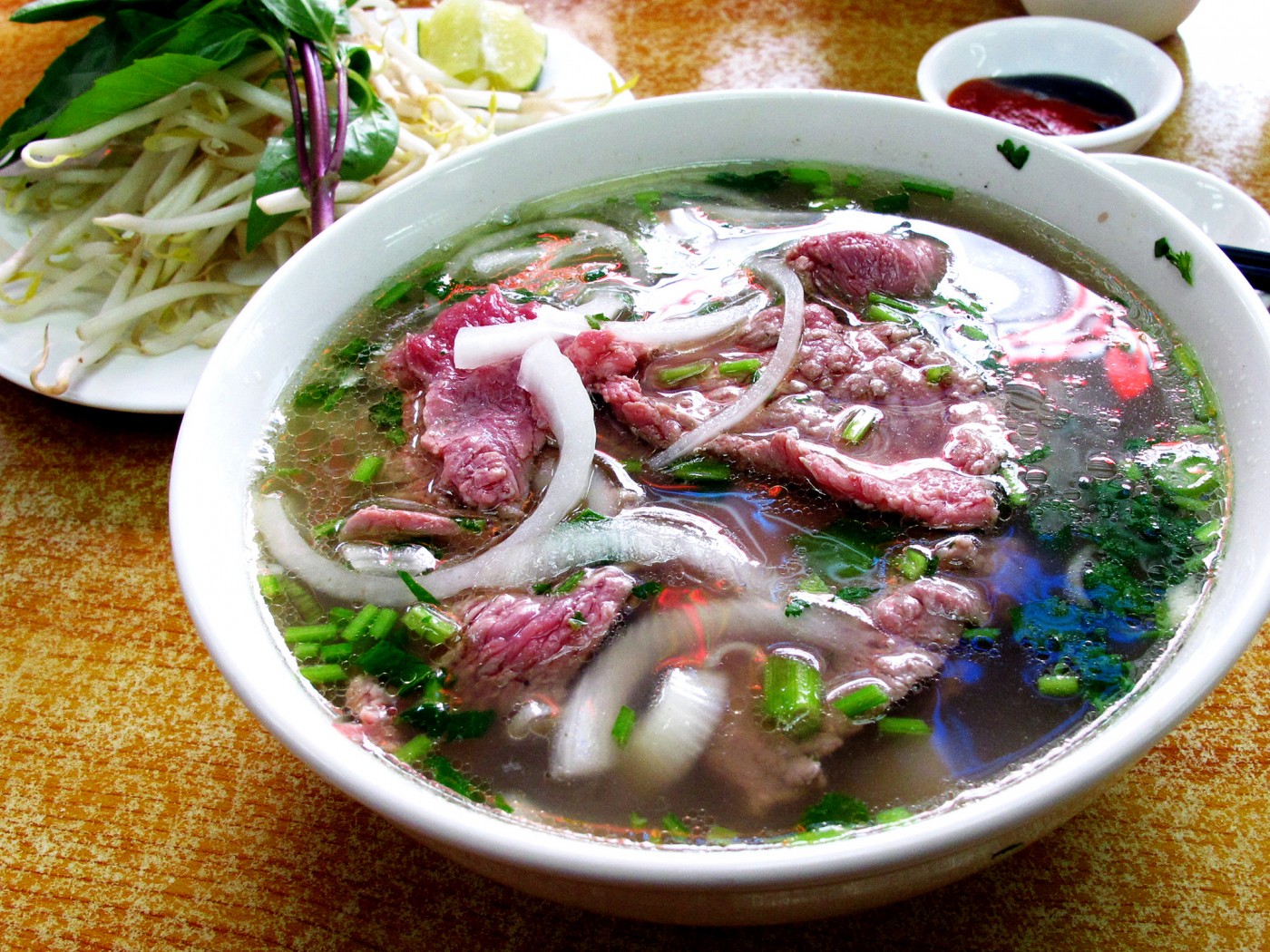Weasel Coffee and Bowls of Pho
I landed in Saigon a few minutes past midnight exhausted and wired but excited to be in Vietnam, a country that had occupied my imagination for decades. I’d had just enough time at Narita airport to pick up a liter of Yamazaki Single Malt 12 year old Japanese whiskey, my safety net for a good night’s sleep. I wanted to get to my hotel right away before I passed out on the curb. Disoriented, I managed to navigate through the small crowd of taxi drivers to a desk where a manager showed me how to get a cab. “Buy a voucher from the desk clerk for the posted price and don’t give the driver any money.” The ride into town was eerie, through empty streets past dozens of little cafes and restaurants, everything closed. In a few hours crowds would be milling but for now it was as if the city was abandoned.p
In my mind I was still on Eastern Standard Time, it was just past noon and I was hungry. I pictured fresh noodles, basil, bean sprouts, chicken broth, thinly sliced scallions, ginger, and garlic, chopped up peanuts, and a dab of hot, red chili sauce. The hours in the air had left me hungry for real Vietnamese food, not what I was used to sampling in Boston thanks to the huge Vietnamese community there but the powerful flavors of Southeast Asia. At last I’d get the real thing.
pOnly I’d have to wait.
pArriving at my hotel, I cracked open the scotch and ordered room service – grilled chicken on a toasted roll with French fries. It wasn’t Vietnamese, but it was just the thing after 22 hours in the air. Vietnam is a beautiful country; rich in its variety of indigenous and European cuisines prepared perfectly I’d heard. There is surprisingly beautiful food available nearly everywhere. The national dish is called pho – a broth in which noodles, vegetables, and chicken, beef, pork or shrimp are added. My anticipation was building but the old American staple got me to sleep.
>The next morning, I set out to discover the flavors of the country. It seems as if it is always time to eat in Vietnam with ubiquitous choices and I’d go so far as to say that the chief entertainment in this country is eating. Little stands dotted the sidewalks and on every side street there were simple cafes. The most difficult decision was choosing as even the sidewalk vendors looked wonderful. From the carts, the aromas of hot, stir fried ginger and garlic were intoxicating. I decided to make my way from my hotel in search of the city’s chief market. It’s what I do whenever I arrive in a place. Find the market, find the city’s heart. The hotel tried to persuade me to take a cab. “But it’s only a few blocks away,” I vetoed. “You’ll see,” they replied with a smile.
What they meant but had not verbalized, was that you take your life in your hands when you step off a sidewalk in Vietnam. The empty streets from last night today gave way to an onslaught of bicycles, mopeds, motorcycles, cars, and trucks all in high gear, traffic laws being regarded as a suggestion rather than an edict. On the main street just past the opera house, mopeds and motorcycles even raced onto sidewalks and I had to jump out of the way to avoid being run over. The Vietnamese laughed at my dodging, but it’s no joke. People are run down routinely.
In the end it was worth the risk. Ben Thanh Market is one of the most interesting places to observe and eat in the whole country. Pristine and well organized, with signage in English, the market has dozens of stands selling beautiful fruits and vegetables, counters where you can eat pho or noodles, and the biggest prize – coffee. One of the most enjoyable gastronomical experiences in Vietnam I soon learned was their coffee, a legacy from the years of French, colonial occupation. Dark and rich, subtle yet strong, the Vietnamese coffee gave me a jolt, but nothing that made my nerves shudder. It was the wake-up call that refined my senses. In the market, the vendors sell whole beans. The best is the so-called weasel coffee, which in the U.S. is extremely rare and goes for $350 a pound. Here it was $40 and to this day I marvel that I was able to savor that perfect cup with a classic French baguette – chewy, crusty and delicious. In that moment, I could have been in Paris.
Once outside the market, I found simple restaurants serving local fish, pork, and vegetables sautéed quickly in huge, hot woks. Also, suspended on strings were big croaking frogs, still bouncing, and waiting their turn to be eaten. I remember loving a dish of fried, crispy beef with fried garlic eaten at a tiny roadside stand.
Hanoi, Saigon’s big city brother to the north, was a direct contrast to the flurry of activity in Saigon. Crossing streets was easier. It’s not that the drivers obeyed the law, but the narrower streets slowed down the flow of vehicles. Here it was possible to enjoy extremely delicious bowls of noodles with sautéed chicken and bits of lime, basil and bean sprouts. The flavors everywhere were deep yet subtle. As a tourist, I was sometimes treated with curiosity but not for long. A foreigner didn’t attract nearly as much attention as what was in the bowl. I watched people eat fast and with great focus.
Like Saigon, a great variety of cuisines were present. I’ll never forget the pizza I ate at Vine, one of the city’s best restaurants. Billed as Californian, it’s more Italian in scope with great wines and a soothing ambience. I found a need for quiet after a day on those streets. In Vietnam, life is spent on the sidewalks, in open air cafes, and in the markets. We’re not accustomed to it as Westerners. We need peace.
For me, peace and reconciliation come with the eating experience. After all, we are a repository of our memories and if great food is memorable it often conjures up the past. In a country struck by tragedy, I believe the Vietnamese food showed the people’s resilience. Whether it was a nod to French gastronomy or a proud assertion of national flavors, the food – seen everywhere – was a symbol of their identity.

